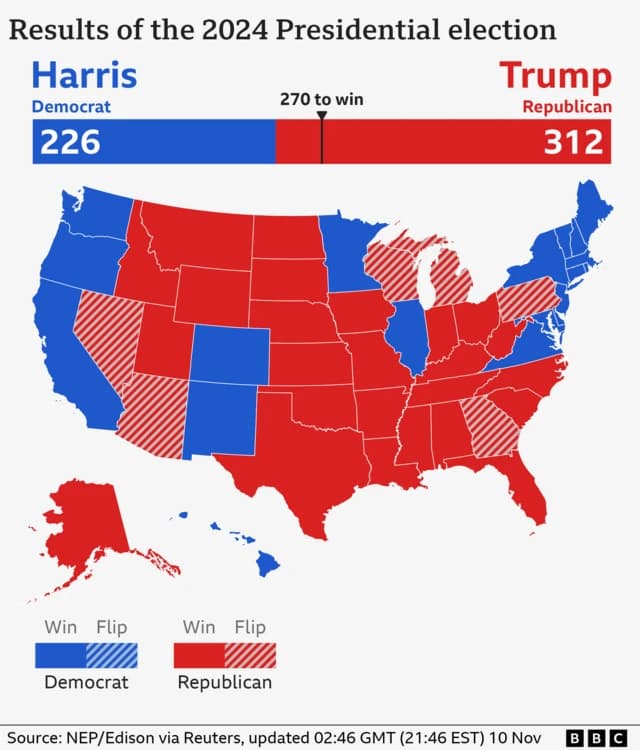Donald Trump Secures Presidency with 49.8% Popular Vote, Marking Historic Non-Consecutive Term

Donald J. Trump has been elected the 47th President of the United States, securing a non-consecutive second term after defeating Kamala Harris in the 2024 presidential election. The Republican candidate garnered 49.8% of the national popular vote, while his Democratic opponent, Kamala Harris, received 48.3%. This outcome marks the first time a Republican candidate has won the popular vote since George W. Bush in 2004 and the second instance in U.S. history of a president winning non-consecutive terms.
The election results saw Trump claim victory in the Electoral College with 312 votes to Harris's 226, notably flipping several key swing states including Arizona, Georgia, Michigan, Nevada, Pennsylvania, and Wisconsin. His popular vote plurality, though not an outright majority, underscored a deeply divided electorate, reflecting significant shifts in voter demographics and sentiment across the nation. Observers noted a global anti-incumbent wave and public discontent with economic conditions as contributing factors to the outcome.
Reacting to the election's conclusion, Matthew Schmitz, a prominent commentator, highlighted the stark political polarization. "This is quite the statement given that about half the country voted for Trump," Schmitz stated in a social media post, emphasizing the significant portion of the electorate that supported the former president. His comment encapsulates the ongoing national discourse surrounding the election's implications for unity and governance.
Trump's victory followed a contentious campaign marked by debates on economic policy, immigration, and the future of American democracy. His return to the White House, a rare event in U.S. political history, sets the stage for a period of intense political scrutiny and potential policy shifts, particularly concerning his stated agenda on various domestic and international fronts. The close popular vote margin further underscores the persistent ideological chasm within the country.